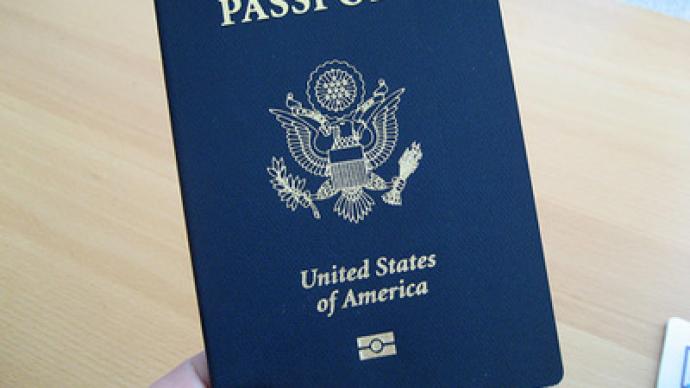High taxes force more Americans to renounce their citizenship

Angry about the latest tax hikes? Each year, thousands of Americans pack their suitcases, rip up their US passports and move permanently overseas to prevent Uncle Sam from taking their money.
In the first three quarters of 2012, more than 1,100 Americans renounced their citizenship and made their homes elsewhere, according to the Federal Register. Available data does not yet include those who left in the fourth quarter, but it is on track to surpass the 1,781 Americans who relinquished their passports in 2011. And the number of Americans who ditched the US in 2011 was seven times higher than those who left in 2008.With 6 million US citizens living abroad and continuing to pay US taxes, expatriates increasingly abandon their citizenship for the sake of saving cash. The US is the only industrialized country that requires its overseas citizens to pay income taxes – even if their income is generated abroad.And for wealthy expatriates, the financial consequences of remaining a US citizen are most severe. Individuals earning more than $400,000 a year and married couples earning more than $450,000 a year will be paying an income tax rate of 39.6 percent – which is up from last year’s rate of 35 percent.Those who earn more than $1 million annually will pay Uncle Sam about $170,341 more this fiscal year, according to the Tax Policy Center. Those who fear losing their savings frequently move to countries that do not tax their incomes.One third of all billionaires that moved from the US to another country chose to go to ‘tax havens’ such as Switzerland, Bahamas, and Singapore, according to a 2012 study by the Research Institute of Industrial Economics.While those who forego their citizenship will lose protection from the US government and could face difficulty in visiting the US, expatriates increasingly consider it worth it – including high-profile celebrities like 73-year-old American-born singerTina Turnerand Facebook co-founder Eduardo Saverin.Turner, who is worth an estimated $200 million, in January became a Swiss citizen and ditched her US citizenship. Saverin, whose net worth is an estimated $2.2 billion, holds Brazilian citizenship and lives in Singapore. Bloomberg estimates that the Facebook co-founder saved at least $67 million in federal income taxes by cutting his ties to the US.But while the rich and famous make headlines for escaping the IRS’ grip on their finances,allAmerican expatriates are subject to US taxes and are required by law to file estimated taxes and income, estate and gift tax returns. Some lawmakers are even trying to subject Americans to taxes even after giving up their citizenship. Sens. Charles Schumer and Bob Casey last yearsuggestedthat Congress vote for a law that would force former US citizens to pay taxes for years after renouncing their citizenship – as well as ban them from ever returning to the US.But in the short-term, ditching the US comes with its own financial penalties: Americans renouncing citizenship are required to pay an often-hefty exit fee. Those whose net worth is more than $2 million or whose annual income tax average is more than $145,000 are required to pay a 15 percent tax on capital gains above $641,000 and taxes on other assets including retirement accounts at the income rate of 39.6 percent.As the only country to tax its citizens abroad, the US is pushing thousands of its citizens away.“If you don’t mind where you live and the tax becomes excessive, then leaving might be a good choice,” Nigel Green, CEO of deVere Group, told Yahoo! Finance. “Countries have less of a hold on people. Governments have to raise more taxes, but they can’t go too far.”














